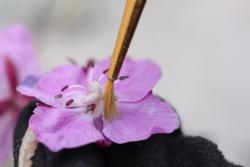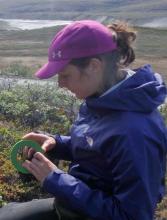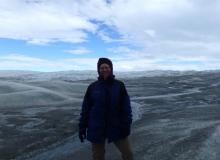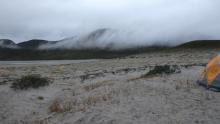Update
Now Archived: 16 June 2016 Event with Anne Schoeffler You can access this event by visiting the PolarConnect Archives.
What Are They Doing?

This work can have important pan-Arctic and global implications. The majority of flowering plants in nature and one third of our crop plants depend on pollinators to produce fruits and seeds. As temperatures rise in the Arctic, successful adaptation and range expansion of many plants, including plants migrating into the Arctic, will depend on pollinators. This study will help us determine which mechanisms may most strongly drive changes in plant-pollinator interactions and plant reproduction.
Where Are They?

Latest Journals

Ms. Urbanowicz is a PhD student in the Ecology and Evolutionary Biology graduate program at Dartmouth College. Her research explores the effects of climate change on plant-pollinator interactions. Pollinators and plants might have different responses to climate change, which can have important environmental and agricultural consequences. She is currently focusing on the Arctic, where environmental change due to climate change is rapid. This research focus translates to many happy hours in the field, collecting data about flowers and their visitors. More information about Ms. Urbanowicz's research group can be found here.





